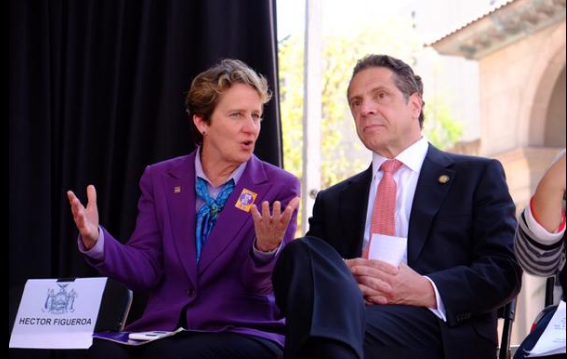Last week, in keeping with the Service Employees International Union’s 2009 blueprint to unionize the fast-food industry by choosing “metro areas with a favorable local political environment,” New York Governor Andrew Cuomo penned an op-ed in the New York Times calling for New York’s minimum wage to be raised to $15 per hour for workers in the fast-food industry.
"A $15 wage floor can be a reality." @MaryKayHenry statement on #FightFor15NY: http://t.co/V0IY3clu0w @NYGovCuomo pic.twitter.com/PtdK03xnm9
— SEIU (@SEIU) May 7, 2015
As announced in his op-ed, on Thursday. Cuomo kept his promise to instruct New York’s state labor department to convene a “wage board” to investigate and make reccomendations to increase the minimum wage in the fast-food industry.
Governor Andrew M. Cuomo today instructed Acting State Labor Commissioner Mario J. Musolino to empanel a Wage Board that will investigate and make recommendations on an increase in the minimum wage in the fast food industry. The Wage Board will take approximately three months to examine the issue and make recommendations regarding a possible increase. Those recommendations are expected by July, and do not require legislative approval in order to become enacted. [Emphasis added.]
Notwithstanding the economic pressure placed by imposing a government-mandated wage on a single industry while exempting other industries that compete for many of the same workers—like hotels, retails, as well as non-fast food restaurants—the economic burdens placed in trying to compete on wages will be felt by small business.
However, in response to Cuomo’s call to raise the minimm wage on the fast-food industry, San Francisco economist James Patterson wrote a “Letter to the Editor” that raises another important issue:
It is a modern American tragedy that workers want (and politicians promote) high-paying, low-skilled jobs, like those in the fast-food industry. The two concepts are inconsistent unless applied to illegal or socially undesirable activities. Increasing the minimum wage encourages workers to hold these jobs rather than seeking higher-wage alternatives that could seriously address income inequality.
A strong, robust national adult education program to help fast-food workers move up the socioeconomic ladder would be a better investment, with a greater return for workers and society, rather than rewarding them for dooming themselves to economic stagnation. [Emphasis added.]
You can read Patterson’s entire Letter to the Editor here.
SEIU Fast Food Organizing Plan – 2009 by LaborUnionReport.com





